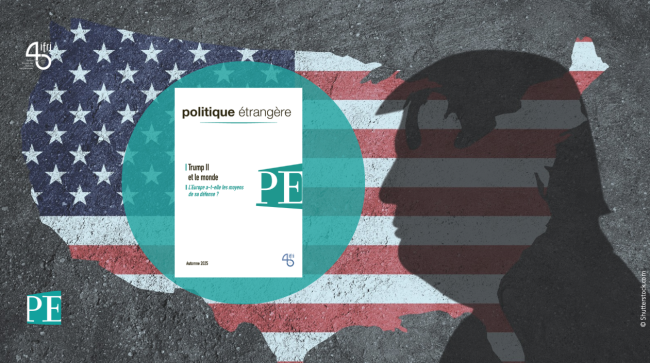Comply or die ? Les entreprises face à l’exigence de conformité venue des États-Unis
The United States has developed a vast body of legal regulations with extraterritorial application in order to tackle corruption on the international stage and to pursue companies that do not abide by the trade embargoes demanded by U.S. foreign policy.

The main text regarding corruption is the Foreign Corruption Protection Act (FCPA) of 1977. Embargoes are supervised by the Office of Foreign Assets Control (OFAC), an agency of the U.S. Department of the Treasury. They are either imposed on countries and individuals, or ban specific items, on the basis of ad hoc laws and regulations such as ITAR (International Traffic in Arms Regulation) and EAR (Export Administration Regulation).
Since 1998, the American justice system has extended the definition of the link that binds a foreign actor to the United States (the nexus) and constitutes the legal basis for prosecution. If the use of the U.S. dollar represents the most frequent nexus, present-day criteria include the employment of an American citizen, participating in a meeting in the U.S. or sending an email through a server located in the United States. The simple use of American software may soon also be considered a nexus.
French and European companies have often been sued and fined in recent years. Could the U.S. “legal soft-power” have underlying economic and strategic objectives? This would appear very inequitable given that Russian and Chinese companies are not being prosecuted… Furthermore, a majority of legal cases are actually solved through transactions (i.e. Deferred Prosecution Agreements – DPA), a way of escaping expensive and uncertain trials, at the expense of obtaining a true legal verdict.
In response, Europeans have started to adopt their own regulations. In France, the Sapin 2 law of December 2016 establishes an obligation for French companies to develop their own compliance rules against corruption. This evolution could result in a decrease in legal action from the United States.
The observance of U.S.-imposed embargoes, for its part, depends on diplomatic developments. While the signature of the JCPOA (Joint Comprehensive Plan of Action) appeared to allow the long-awaited lifting of international sanctions against Iran, where European companies are preparing to invest, the change of attitude of the U.S. administration since the election of Donald Trump is a real game-changer.
This content is available in French: "Comply or die ? Les entreprises face à l’exigence de conformité venue des États-Unis"
Related centers and programs
Discover our other research centers and programsFind out more
Discover all our analysesBrazil One Year Away from the October 2026 General Elections
Brazil’s general elections will be held on October 4, 2026, to elect the president, vice-president, members of the National Congress, governors, deputy governors and state legislative assemblies. For the presidential and gubernatorial elections, a second round will be held on October 25 if no candidate obtains a majority of the votes in the first round.
Trump II: The Clash of Ideologies
The second Trump administration brings together a number of very different, even opposing, ideologies: far-right populism, the reactionary Christian right, paleolibertarianism, and technolibertarianism. The most visible measures taken since Donald Trump's return to the White House have been populist in nature, with the president's authority strengthened, checks and balances weakened, a form of identity politics embraced, and economic nationalism implemented.
Water in Mexico: an Emergency that Will Wait
Access to water is already and will become increasingly problematic for Mexican economic actors due to the progressive scarcity of the resource resulting from climate change, a geographical distribution that does not coincide with that of the population or economic activity, and management that has so far been far too lax.
Donald Trump v. the States: the Case of New York
While the disruptive policies of the second Trump administration are being implemented at the federal level and on the international stage, they are also being felt in the federal states and major cities across the country. In the spring of 2025, several cases involving the state and city of New York demonstrate that the president’s attacks on environmental protection, the separation of powers, freedom of speech, etc., are also being carried out at the local level.











